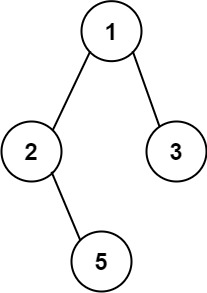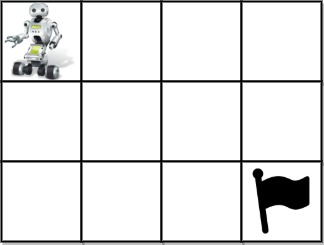Programmers Problem : N-Queen
-
가로, 세로 길이가 n인 정사각형으로된 체스판이 있습니다. 체스판 위의 n개의 퀸이 서로를 공격할 수 없도록 배치하고 싶습니다.
-
예를 들어서 n이 4인 경우, 다음과 같이 퀸을 배치하면 n개의 퀸은 서로를 한번에 공격 할 수 없습니다.


-
체스판의 가로 세로의 세로의 길이
n이 매개변수로 주어질 때,n개의 퀸이 조건에 만족 하도록 배치할 수 있는 방법의 수를 return하는 solution함수를 완성해주세요. -
제한사항
- 퀸(Queen)은 가로, 세로, 대각선으로 이동할 수 있습니다.
n은 12이하의 자연수 입니다.
Solution
function solution(n) {
let answer = 0;
const backtracking = (board, rowIndex) => {
if(rowIndex === n) {
answer++;
return;
}
const nextRowIndex = rowIndex + 1;
for(let i = 1; i <= n; i++) {
board[nextRowIndex] = i;
if(isPromising(board,nextRowIndex)) {
backtracking(board, nextRowIndex);
}
}
}
const isPromising = (board, rowIndex) => {
for(let i = 1; i < rowIndex; i++) {
if(board[i] === board[rowIndex]) {
return false;
}
if(Math.abs(board[i] - board[rowIndex]) === rowIndex - i) {
return false;
}
}
return true;
}
for(let i = 1; i <= n; i++) {
const board = new Array(n+1).fill(0);
board[1] = i;
backtracking(board, 1);
}
return answer;
}LeetCode Problem : N-Queens
-
The n-queens puzzle is the problem of placing
nqueens on ann x nchessboard such that no two queens attack each other. -
Given an integer n, return all distinct solutions to the n-queens puzzle. You may return the answer in any order.
-
Each solution contains a distinct board configuration of the n-queens' placement, where
'Q'and'.'both indicate a queen and an empty space, respectively. -
Example:
- Input: n = 4
- Output: [[".Q..","...Q","Q...","..Q."],["..Q.","Q...","...Q",".Q.."]]
- Explanation: There exist two distinct solutions to the 4-queens puzzle as shown below

Solution
/**
* @param {number} n
* @return {string[][]}
*/
var solveNQueens = function(n) {
const casesOfChessboard = [];
const backtracking = (board, rowIndex, colPlacements) => {
if(rowIndex === n) {
const chessboard = colPlacements.map(queenIndex => {
const queenStrIndex = queenIndex - 1;
return '.'.repeat(queenStrIndex) + 'Q' + '.'.repeat(n - queenStrIndex - 1);
});
casesOfChessboard.push(chessboard);
return;
}
const nextRowIndex = rowIndex + 1;
for(let i = 1; i <= n; i++) {
board[nextRowIndex] = i;
colPlacements.push(i);
if(isPromising(board,nextRowIndex)) {
backtracking(board, nextRowIndex, colPlacements);
}
colPlacements.pop();
}
};
const isPromising = (board, rowIndex) => {
for(let i = 1; i < rowIndex; i++) {
if(board[i] === board[rowIndex]) {
return false;
}
if(Math.abs(board[i] - board[rowIndex]) === rowIndex - i) {
return false;
}
}
return true;
};
for(let i = 1; i <= n; i++) {
const board = new Array(n+1).fill(0);
const colPlacements = [];
board[1] = i;
colPlacements.push(i);
backtracking(board, 1, colPlacements);
}
return casesOfChessboard;
};LeetCode Problem : Beautiful Arrangement
-
Suppose you have
nintegers labeled1throughn. A permutation of thosenintegersperm(1-indexed) is considered a beautiful arrangement if for everyi(1 <= i <= n), either of the following is true:perm[i]is divisible byi.iis divisible byperm[i].
-
Given an integer
n, return the number of the beautiful arrangements that you can construct. -
Example 1:
- Input: n = 2
- Output: 2
- Explanation:
- The first beautiful arrangement is [1,2]:
- perm[1] = 1 is divisible by i = 1
- perm[2] = 2 is divisible by i = 2
- The second beautiful arrangement is [2,1]:
- perm[1] = 2 is divisible by i = 1
- i = 2 is divisible by perm[2] = 1
- The first beautiful arrangement is [1,2]:
Solution
/**
* @param {number} n
* @return {number}
*/
var countArrangement = function(n) {
let count = 0;
const visited = new Array(n+1).fill(false);
const backtracking = (num) => {
if (num > n) {
count++;
return;
}
for (let index = 1; index <= n; index++) {
if (!visited[index] && (index % num === 0 || num % index === 0)) {
visited[index] = true;
backtracking(num+1);
visited[index] = false;
}
}
}
backtracking(1);
return count;
};LeetCode Problem : Binary Tree Paths
-
Given the
rootof a binary tree, return all root-to-leaf paths in any order .- A leaf is a node with no children.
-
Example 1:
- Input: root = [1,2,3,null,5]
- Output: ["1->2->5","1->3"]

Solution
/**
* Definition for a binary tree node.
* function TreeNode(val, left, right) {
* this.val = (val===undefined ? 0 : val)
* this.left = (left===undefined ? null : left)
* this.right = (right===undefined ? null : right)
* }
*/
/**
* @param {TreeNode} root
* @return {string[]}
*/
var binaryTreePaths = function(root) {
const paths = [];
const dfs = (node, curPath) => {
if (!node) {
return;
}
if (!node.left && !node.right) {
const totalPath = [...curPath, node.val].join('->');
paths.push(totalPath);
return;
}
dfs(node.left, [...curPath, node.val]);
dfs(node.right, [...curPath, node.val]);
}
dfs(root, []);
return paths;
};LeetCode Problem : Unique Paths 3
- You are given an
m x ninteger arraygridwheregrid[i][j]could be:1representing the starting square. There is exactly one starting square.2representing the ending square. There is exactly one ending square.0representing empty squares we can walk over.-1representing obstacles that we cannot walk over.
- Return the number of 4-directional walks from the starting square to the ending square, that walk over every non-obstacle square exactly once.

-
Example 1:
-
Input: grid = [[1,0,0,0],[0,0,0,0],[0,0,2,-1]]
-
Output: 2
-
Explanation: We have the following two paths:
- (0,0),(0,1),(0,2),(0,3),(1,3),(1,2),(1,1),(1,0),(2,0),(2,1),(2,2)
- (0,0),(1,0),(2,0),(2,1),(1,1),(0,1),(0,2),(0,3),(1,3),(1,2),(2,2)
-

- Example 2:
- Input: grid = [[1,0,0,0],[0,0,0,0],[0,0,0,2]]
- Output: 4
- Explanation: We have the following four paths:
- (0,0),(0,1),(0,2),(0,3),(1,3),(1,2),(1,1),(1,0),(2,0),(2,1),(2,2),(2,3)
- (0,0),(0,1),(1,1),(1,0),(2,0),(2,1),(2,2),(1,2),(0,2),(0,3),(1,3),(2,3)
- (0,0),(1,0),(2,0),(2,1),(2,2),(1,2),(1,1),(0,1),(0,2),(0,3),(1,3),(2,3)
- (0,0),(1,0),(2,0),(2,1),(1,1),(0,1),(0,2),(0,3),(1,3),(1,2),(2,2),(2,3)
Solution
/**
* @param {number[][]} grid
* @return {number}
*/
var uniquePathsIII = function(grid) {
let count = 0;
const rowLength = grid.length;
const colLength = grid[0].length;
const movement = [[0,1], [1,0], [0, -1], [-1, 0]];
let walkable = rowLength * colLength;
let start, end;
for (let r = 0; r < rowLength; r++) {
for (let c = 0; c < colLength; c++) {
if (grid[r][c] === 1) {
start = [r, c];
continue;
}
if (grid[r][c] === 2) {
end = [r, c];
continue;
}
if (grid[r][c] === -1) {
walkable--;
}
}
}
const dfs = (i, j, walked) => {
for (const [dr, dc] of movement) {
const row = i + dr, col = j + dc;
if (row < 0 || row >= rowLength || col < 0 || col >= colLength || grid[row][col] === 1 ||grid[row][col] === -1) {
continue;
}
if (row === end[0] && col === end[1]) {
if (walked + 1 === walkable) {
count++;
continue;
}
}
grid[row][col] = 1;
dfs(row, col, walked + 1);
grid[row][col] = 0;
}
};
dfs(start[0], start[1], 1);
return count;
};LeetCode Problem : Generate Parentheses
- Given
npairs of parentheses, write a function to generate all combinations of well-formed parentheses.
Example
- Input: n = 3
- Output: ["((()))","(()())","(())()","()(())","()()()"]
Constraints
- 1 <=
n<= 8
Solution
/**
* @param {number} n
* @return {string[]}
*/
var generateParenthesis = function(n) {
const result = [];
const backTracking = (str, open, close) => {
if (open === n && close === n) {
result.push(str);
return;
}
if (open < n) {
backTracking(str + '(', open + 1, close);
}
if (open > close) {
backTracking(str + ')', open, close + 1);
}
};
backTracking('', 0, 0);
return result;
};LeetCode : Letter Tile Possibilities
- You have
ntiles, where each tile has one lettertiles[i]printed on it.
Return the number of possible non-empty sequences of letters you can make using the letters printed on those tiles.
Example
- Input: tiles = "AAB"
- Output: 8
- Explanation: The possible sequences are "A", "B", "AA", "AB", "BA", "AAB", "ABA", "BAA".
Constraints
- 1 <=
tiles.length<= 7 tilesconsists of uppercase English letters.
Solution
/**
* @param {string} tiles
* @return {number}
*/
var numTilePossibilities = function(tiles) {
const sequenceSet = new Set();
const dfs = (tiles, str) => {
if (!tiles.length) {
return;
}
for (let i = 0; i < tiles.length; i++) {
str.push(tiles[i]);
sequenceSet.add(str.join(''));
rest = tiles.filter((_, index) => index !== i);
dfs(rest,str);
str.pop();
}
};
dfs(tiles.split(''), []);
return sequenceSet.size;
};